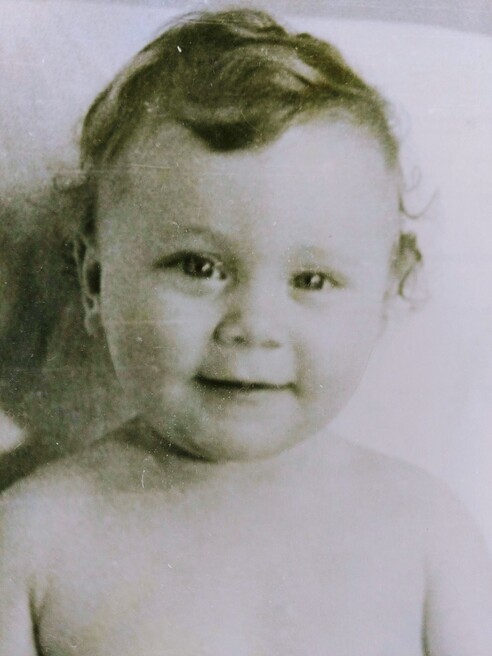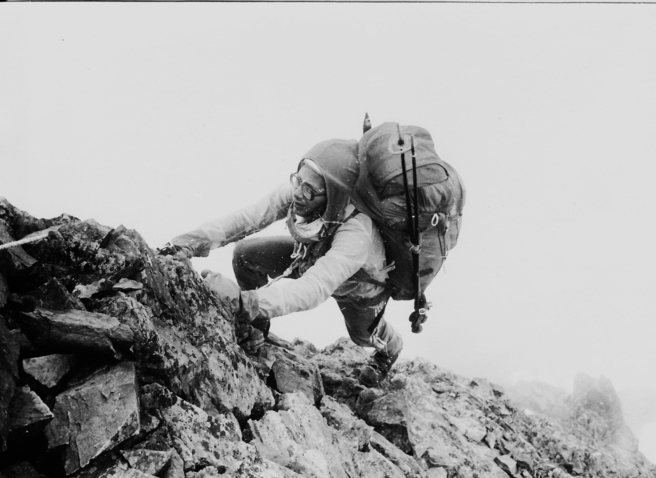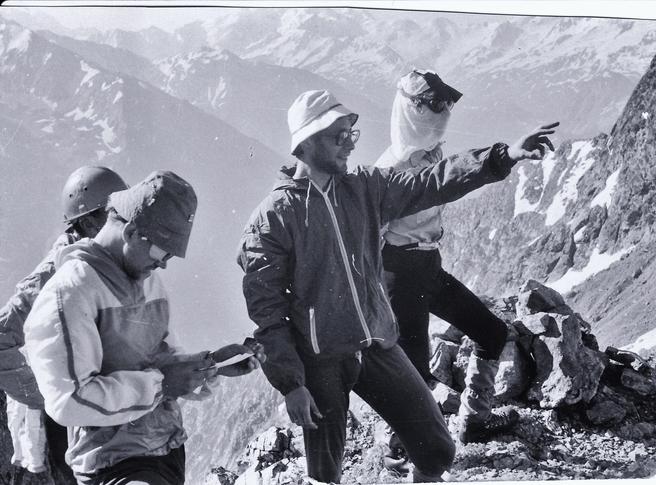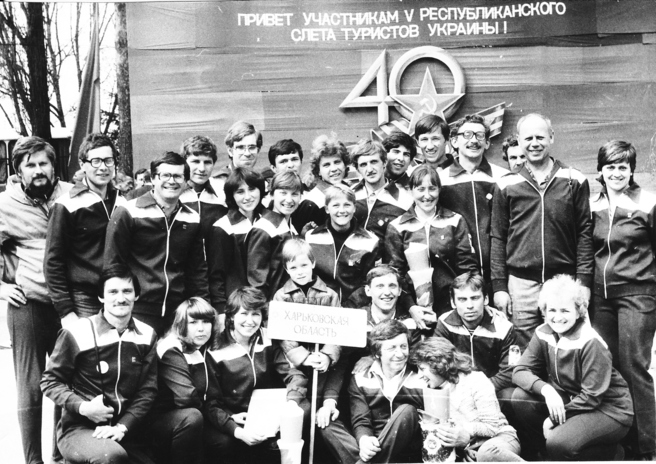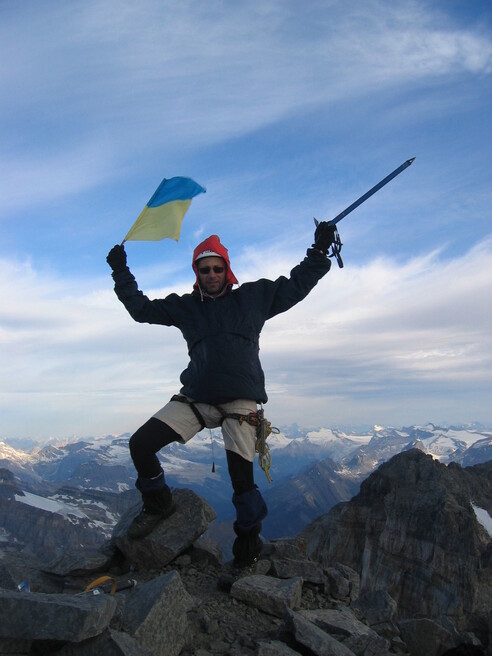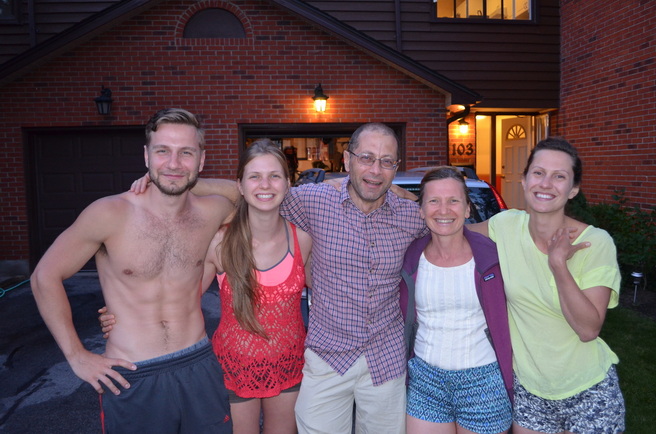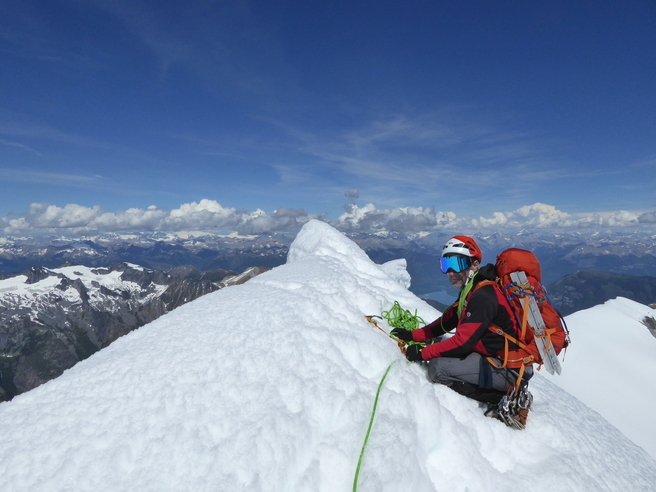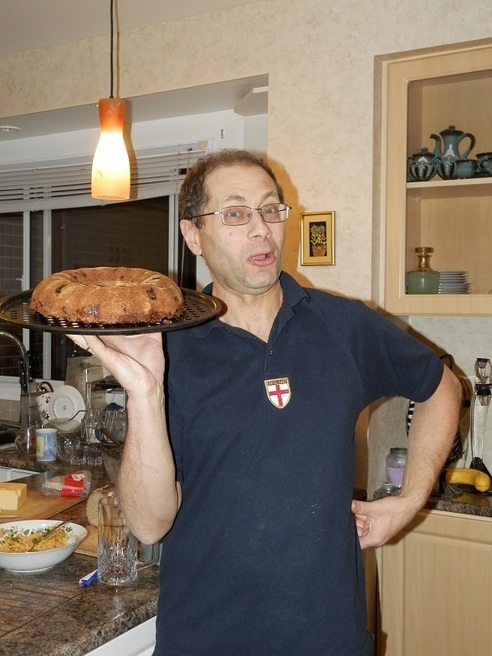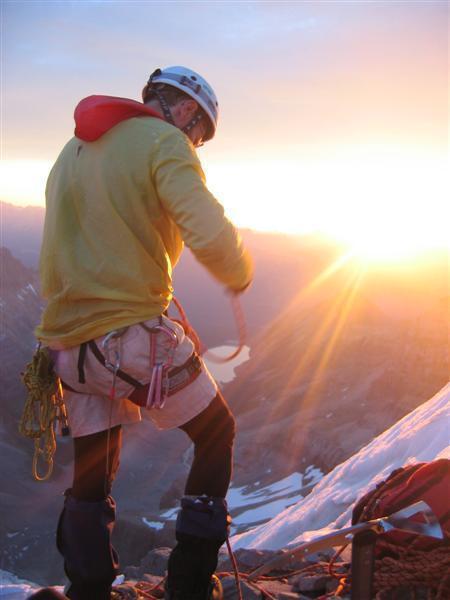For the three Kaschenko children their childhoods were imbued with the love for the outdoors since before they could walk. For the oldest kids, early memories start in Ukraine, watching their dad compete or going on ‘kid treks’ with other climber offsprings. Although the youngest daughter Anastasia grew up in Canada, her memories aren’t that different – she can recollect hazy memories as a toddler sitting by a Crag (whether at Rattlesnake point, or Metcalfe, or in the boat at Bon Echo) and looking up at the “colourful shapes moving on ropes” which she would later learn were climbers!
As a family, we often catalogue past years by the mountain trips, expeditions and memories of our summer adventures outdoors. There was always a trip being planned in the Kaschenko household. As immigrants, there was a sense of wanting to soak up this new country - this rugged land of rivers and lakes and forests (and moose!). As parents, Boris and Margarita’s drive to explore was never dampened by a thin budget - and we mean thin. When explaining to others how he could take his family with three kids on a two week summer vacation for under $20 a night (for all, not per person!) - Boris was returned with looks of shock, and a tinge of skepticism. But it was not only possible, it was also incredibly fun. Cramped in a white family van, the Kaschenkos drove to the Canadian east coast, to provincial and national parks like Sandbanks, Killarney, Kill Bear, Pinery, Grundy Lake, returning to our well loved, tightly fitting tent. We were five colorful bugs squeezed together in our sleeping bags, smelling of campfire, and dozing off to the sound of the forest, our dreams filled with memories of the day.
As the family became more established - largely due to Boris working more and better paying jobs - we were able to make the trek to the alluring West Coast, and its mountain ranges. Trips out West quickly became an annual staple, and Boris would bring out the older siblings almost every year, and every year at least one legendary adventure (mishap) was added to the tea time stories. For the inaugural trip in 2004, they climbed Mount Temple, Mt Victoria, and finally Mt Athabasca - where they missed the summit after Boris falling through a crevasse! Next, on a trip to Rogers Pass in 2006, there was a 1am return from Uto due to many unplanned rappels! Yet perhaps the best adventure of all was in 2008, when Boris, Veronika and another climber were benighted on the descent off Alpha (in Tantalus Ranges) taking turns tending fire, watching for bears and “sleeping”.
When the youngest daughter Anastasia grew up, it was her turn for mountain trips with her dad. Boris took her and her friend to the New Hampshire (USA) where they climbed Mt Washington. They had a father daughter trip to BC in 2013 where they traveled through Canmore to Golden, climbing quintessential routes The Three Sisters, Little Bumblebee. In 2014 and 2015 two of them joined the ACC crew to the Lake Placid trip, where she was introduced to ice-climbing and winter trekking. And in 2015 at the Sorcerer Lodge ACC camp they climbed the summits in the Selkirk range.
There were many more trips to most classic mountaineering spots in the Rockies. As a whole family, the Kaschenkos joined the ACC Toronto Section trip in Lake O’Hara (2007).
In addition to Out West trips, and local crag outings, each summer season also always meant many weekends at Bon Echo, where we had our fair share of family adventures for over 20 years - including stories wacky enough to get us enshrined in the apres-climb conversations of the Bon Echo crew (yes…. We sunk the boat).
In recent years, as the kids grew up and “left the nest” Boris and Margarita had more freedom to travel and explore as they wished. They scaled Cuba’s highest mountain Peak Torquino, trekked to the top of Hawaii’s formidable Mauna Kea volcano summit, hiked in the mountains of the temperate California coast, summited Britain’s tallest peak Ben Nevis, and explored the mysterious Scottish Highlands.
Photo: The family outside the Kaschenko home in August 2014. WIth Boris and Veronika having just returned from climbing in the Bugaboos.


